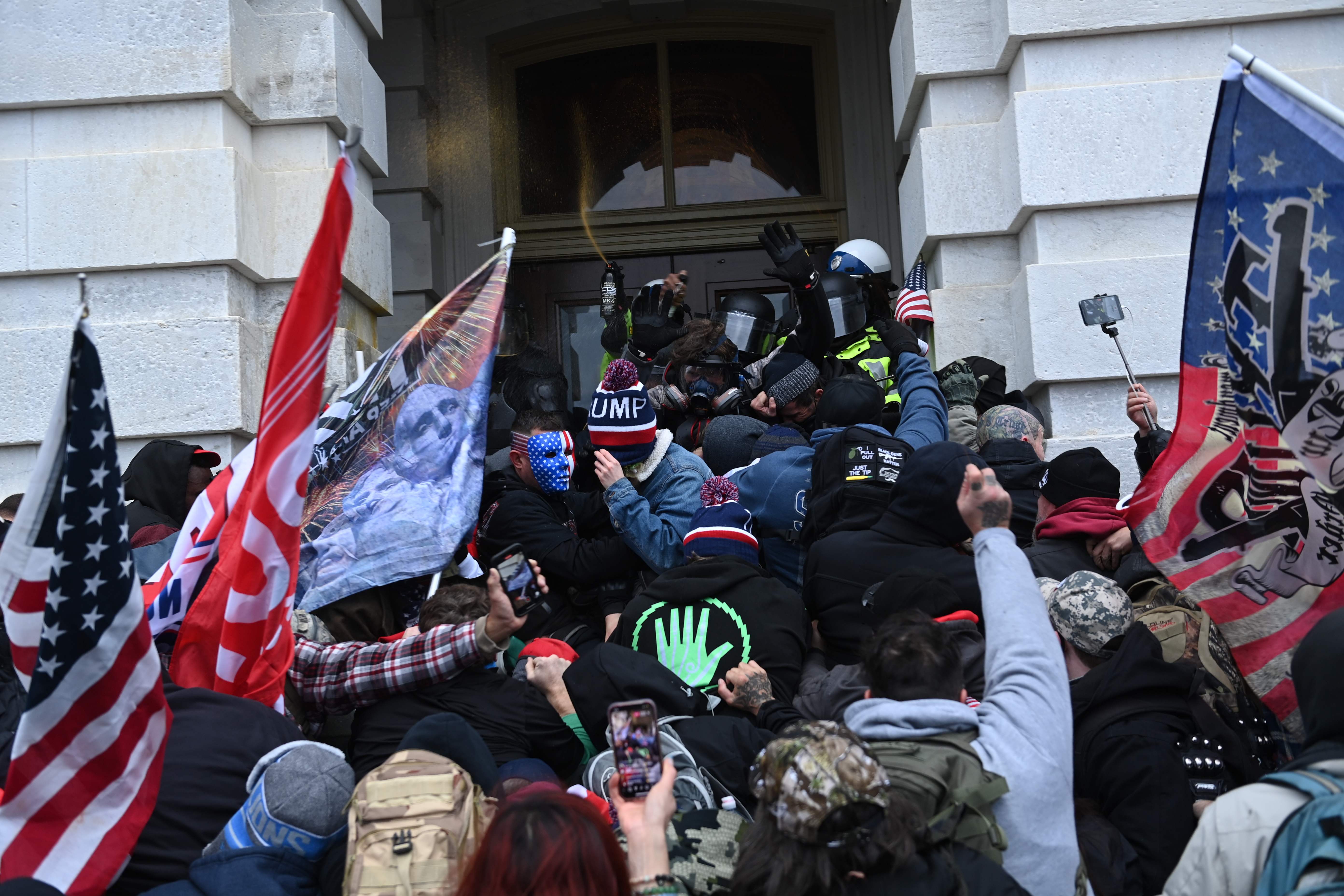Will the storming of the US Capitol be seen by historians like the storming of the Bastille?
Few realised at the time that the Bastille riot would change France irrevocably. It’s time to consider whether the US, too, will be forever changed by what happened on 6 January, writes Phil Thomas


As France, and Francophiles around the world, mark Bastille Day this week, it’s a good opportunity to remember one of the great quotes about the French Revolution – one which may have ominous undertones for our own times.
On Richard Nixon’s trip to China to cement detente between Washington and Beijing in 1972, his host was Zhou Enlai, Mao’s right-hand man. A veteran of the bitter Chinese civil war, he had shared the hardships of the Long March and been at the heart of the seismic political upheavals that had torn his country apart, from the Great Leap Forward to the Cultural Revolution. Zhou was also an intellectual known for his interest in revolutionary history.
Asked over dinner what he thought the main consequences of the French Revolution had been, Zhou is said to have paused, peered into the distance, and finally replied: “It’s too soon to say.”
His enigmatic response has been seen as a pithy illustration of the long view of history supposedly held by Chinese leaders, in contrast to their less patient American rivals. (Unfortunately a few years ago Chas Freeman Jr – Nixon’s interpreter and, it seems, a world-class spoilsport – revealed that Zhou had actually been referring to the much more recent student unrest of May 1968, but that the misinterpretation had been too good to correct.)
The phrase is also a timely reminder that the real meaning of tumultuous events is even more opaque for people who live through them than for those poring over history books a century and a half later with the benefit of hindsight.
That will have been true of the storming of the Bastille in 1789. We now know that what we call the French Revolution was under way. But at the time few could have guessed where that day of drama would lead. For a long time, and for most people, things went on as normal. Even King Louis and Marie Antoinette remained on their thrones for years after (with plenty of time and opportunity to avoid their subsequent one-way trips in the tumbril).
Likewise, almost 2,000 years earlier, Roman citizens seeing Augustus become the first emperor would have had little notion that 500 years of carefully managed republican democracy had just come to an end, and that a half-millennium of military dictatorship was beginning.
Just as history is the current affairs of the past, so our current affairs will be the history of the future. And what was true of the Bastille is also true of the storming of another government building by an enraged mob, 3,000 miles away and 232 years later.
How will future historians see the US Capitol riot of 6 January 2021? Will it come to be understood as the start of an epoch-changing chain of events that leaves the United States as radically changed as France was in the decades after 1789? Or will it be a blip, with a number of identifiable consequences, but little more significance than the events of 1968?
That is a question Republicans and Democrats are currently fighting over.
While hundreds of suspected rioters go through the courts, Democrats have set up a committee to investigate the Trump-incited insurrection, after Republicans blocked a powerful commission to do the same. As The Independent reported, anti-Trump GOP congresswoman Liz Cheney was named a member of the new committee, making it – notionally at least – bipartisan.
For Republicans hoping to take control of the narrative, different strategies have emerged. Blocking the Democrats at all costs is an old favourite; underplaying what happened is popular (“Like a normal tourist visit,” said one politician, later shown to have been cowering in terror behind a makeshift barricade on 6 January); pretending that the mob was made up of left-wing terrorists in disguise is far-fetched, but has its proponents.
Trump himself has tried all of these and more. With his new line of lionising Ashli Babbitt, the Air Force veteran shot dead trying to break into a corridor leading to terrified lawmakers, he has doubled down on painting his mob as the good guys. On Sunday he told Fox News that “these were peaceful people, these were great people”. He said there was “love” in the air that day. News to the 140 injured police officers perhaps.
But are Democrats doing enough to ensure this attack on democracy is seen for what it is and, crucially, to take the initiative in its aftermath?
As Zhou Enlai would say, it’s too soon to say. But in the battle to control the narrative and consequences of the storming of the Capitol, those in favour of protecting America’s democracy for future generations must realise there’s no time to lose.
Yours,
Phil Thomas
Assistant editor (US)
Join our commenting forum
Join thought-provoking conversations, follow other Independent readers and see their replies
Comments